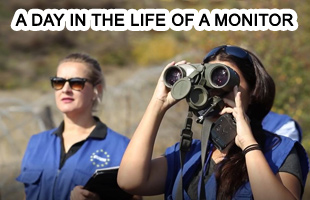PRESS RELEASE
On Monday 3 December, the 28 EU member
states formally extended the mandate of the EU Monitoring Mission (EUMM) in
Georgia for a further two years, until 14 December 2020.
The basic mandate, organisation and staffing levels remain unchanged, while some concrete adjustments of the Mission will be undertaken. Among other things, the Mission will strengthen its analytical work and reinforce its focus on some concrete areas in its monitoring and reporting – including minority issues, hybrid threats and issues related to cultural heritage.
On the occasion of the
extension, Head of Mission, Erik Høeg states: “I appreciate the decision of EU
member states to extend the mandate for two more years. It means that we can
continue to contribute to stability 24/7 as the only international monitoring
presence of the ground. The decision reflects an enduring commitment by the EU
to regional stability.”
Background
EUMM is an unarmed, civilian
Mission of the European Union. It was deployed on the 1st of October
2008 to monitor compliance with the agreement - the Six Point Agreement - that
ended the August war. The Mission recently marked 10 years of deployment in
Georgia. EUMM experts patrol 365 days of the year and regularly reports their
observations to EU member states and EU institutions.
The Mission presently has 319 staff members in 4 different locations – a Headquarters in Tbilisi and Field offices in Mtskheta, Gori and Zugdidi. A total of 26 EU member states are represented in EUMM staff.
With over 200 monitors from
across the EU deployed in Georgia, the Mission represents the continuous
commitment of the EU to peace and stability in the region. Presently the EUMM
is the only international monitoring presence on the ground. The Mission is currently
headed by Erik Høeg, a senior Danish diplomat.
The main tasks of EUMM Georgia are:
-
Stabilisation
: monitoring the
situation on the ground, particularly along the Administrative Boundary
Lines between the territory under the administration of the Georgian
government and the breakaway regions of South Ossetia and Abkhazia. In
addition to regular patrolling, the Mission helps to maintain stability by
operating a Hotline to deal with incidents in real time.
-
Normalisation
: monitoring the impact
of the conflict on the people living near the Administrative Boundary
Lines or displaced from their homes as a result of the 2008 war.
-
Confidence building
: contributing to the
reduction of tensions through liaison and facilitation of contacts between
the parties to the conflict.
- Informing EU policy: providing information and analysis to policy-makers of the EU member states.



